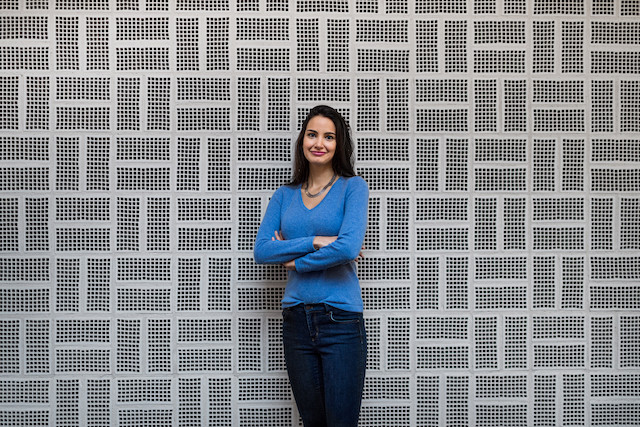On 27 September, Azerbaijani forces, backed by Turkey, launched an airborne and land attack in the de facto independent state, also known as Nagorno-Karabakh, which is populated 95% by ethnic Armenians. Since then around five civilians have been killed in clashes along with scores of military personnel.
Author Olivia Katrandjian, whose novel draft won second prize in the 2019 national literary prize, worked as a journalist before moving to Luxembourg in 2016. “I have been to Nagorno-Karabakh and interviewed soldiers on the frontline, many of whom are just boys. My cousins, who have babies, are waiting to be called up to fight,” she said.
Desperate to spread the message, she founded the International Armenian Literary Alliance, a not-for-profit to foster the distribution of Armenian literature in English. Among its first activities will be the “Don’t Look Away: A Literary Series for Artsakh”, involving virtual readings from prize-winning writers on 10 October at 9pm. Participants include Peter Balakian, Carolyn Forche, Nancy Kricorian, Lory Bedikian, and Anna Turcotte. The latter fled Baku as a child during the anti-Armenian attacks in Azerbaijan in 1989, and recounts this experience in her memoir “Nowhere, a Story of Exile”.

Participants in a peaceful demonstration are piectured outside the Cercle Cité in Place d'Armes on 6 October 2020. Photo: Delano
“Armenians all over the world are mobilising to raise money and awareness because the attacks by Azerbaijan, backed by Turkey, are a threat to our existence as a people. In July, Erdogan promised ‘to fulfill the mission our grandfathers have carried out for centuries in the Caucasus,’ a statement with clear echoes of the Armenian Genocide,” Katrandjian said, adding: “Now, through constant aerial bombardments, Azerbaijan is targeting civilians and non-military infrastructure like hospitals and schools. Soldiers and civilians on both sides have lost their lives, and Armenians call for peace.”
In Luxembourg on Tuesday, Armenians and friends of Armenia hosted a peaceful demonstration calling on international governments to act.
“The issue isn’t just Artsakh for now. It’s bigger than that. It’s Turkey interfering in this war and fighting against the republic of Armenia. It’s a flashback,” Tatevik Manukyan, honorary consul of Armenia in Luxembourg, told Delano on Tuesday, referring to the Armenian genocide. She added: “I would love the international community to express and act in solidarity with people being attacked on a massive scale right now, people in Nagorno-Karakbakh. It’s on the doorstep of Europe. I don’t want turkey to reach the gates of Vienna again before the international community wakes up because by then it will be too late.”
Armenia, which has a population of around 3 million and diaspora numbering 7 million, saw 1.5 million of its people killed in Turkey and adjoining regions by the Ottoman government from 1914 to 1923.
The reading event can be viewed on Zoom on 10 October at 9pm Luxembourg time, using the password IALA2020
